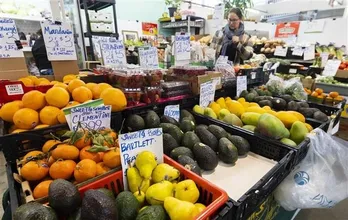
Electricity demand in Vietnam is expected to continue to increase at an average rate of 9.5 percent per year. (Source: EVN)
The rating reflects the agency's outlook on Vietnam (BB/Positive), which was revised to positive from stable on May 9 this year.
Fitch has also affirmed EVN's senior unsecured rating of 'BB' and standalone credit profile (SCP) of 'bb'.
EVN's ratings are equalized with those of the sovereign rating under Fitch's Government-related entities' rating criteria. This is due to Fitch's assessment of a strong likelihood of State support in light of the group's strategic importance to the power sector in Vietnam.
EVN's SCP reflects its position as the owner and operator of Vietnam's electricity transmission and distribution network and its near 58 percent share of Vietnam's power generation capacity.
Fitch sees EVN's status, ownership and control as 'Very Strong'. The State fully owns EVN, appoints its board and senior management, directs investments, and approves tariff hikes in excess of 5 percent.
“The support track record and our expectations of State support for EVN are 'Strong' as the company has received guarantees, step-down loans, loans from State-owned banks at preferential rates, subsidies for strategically important projects, and tax incentives. We expect support to be available if needed, even though the government intends to lower direct support for state-owned enterprises and contain sovereign debt levels," Fitch said.
According to Fitch, electricity demand in Vietnam is expected to continue to increase at an average rate of 9.5 percent per year, driven by rising industrialization, urbanization and affluence. Vietnam has a solid national electrification ratio of about 99 percent, with the ratio reaching almost 100 percent in urban areas. Management has said all electricity consumers are billed regularly and collection rates are between 99 percent and 100 percent across EVN's five power-distribution companies.
Hydropower accounts for about 42 percent of Vietnam's power-generation capacity. Years with productive hydropower generation have lifted EVN's profit margin, but periods of lower rainfall have forced the company to rely excessively on expensive coal.
About 65 percent of EVN's borrowings are denominated in foreign currency, exposing the company to substantial currency risk. Lower gains in electricity sales volume also subject EVN to financial stress due to the company's high capex plans.
However, Fitch expects EVN to adjust its investments if there is a structural decline in demand. The rating agency believes EVN's financial profile could deteriorate rapidly in the absence of regular tariff increases./.
VNA/ Recorded by LAO
 Retailer brings Vietnamese products closer to consumers in Canada
Retailer brings Vietnamese products closer to consumers in Canada



